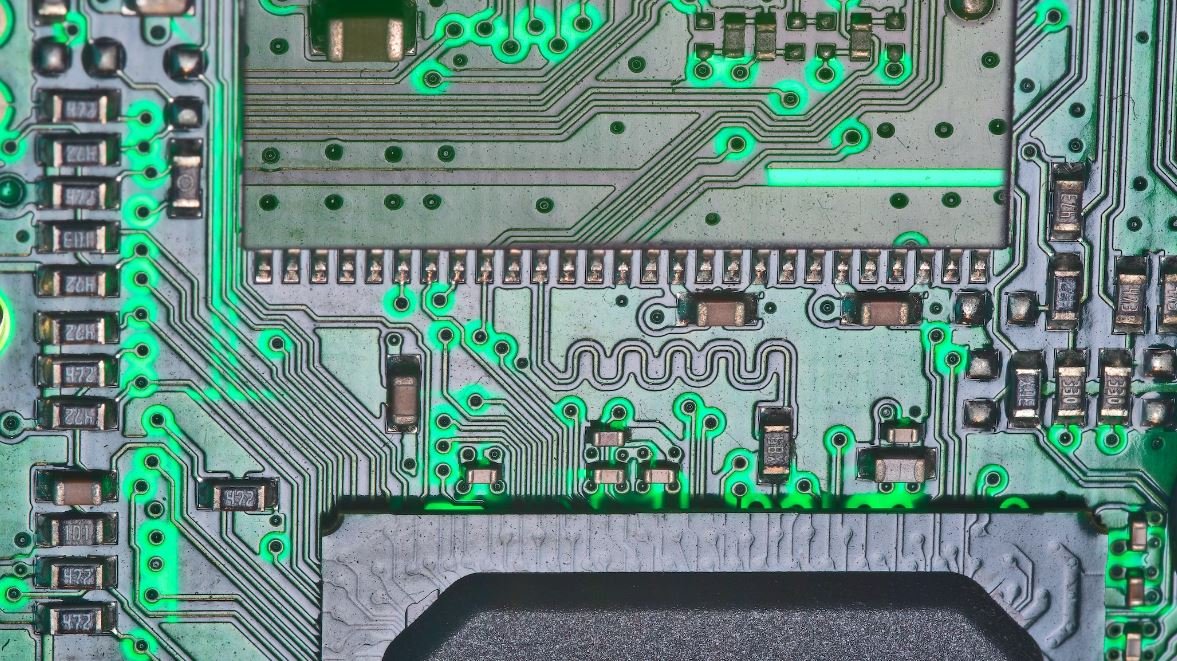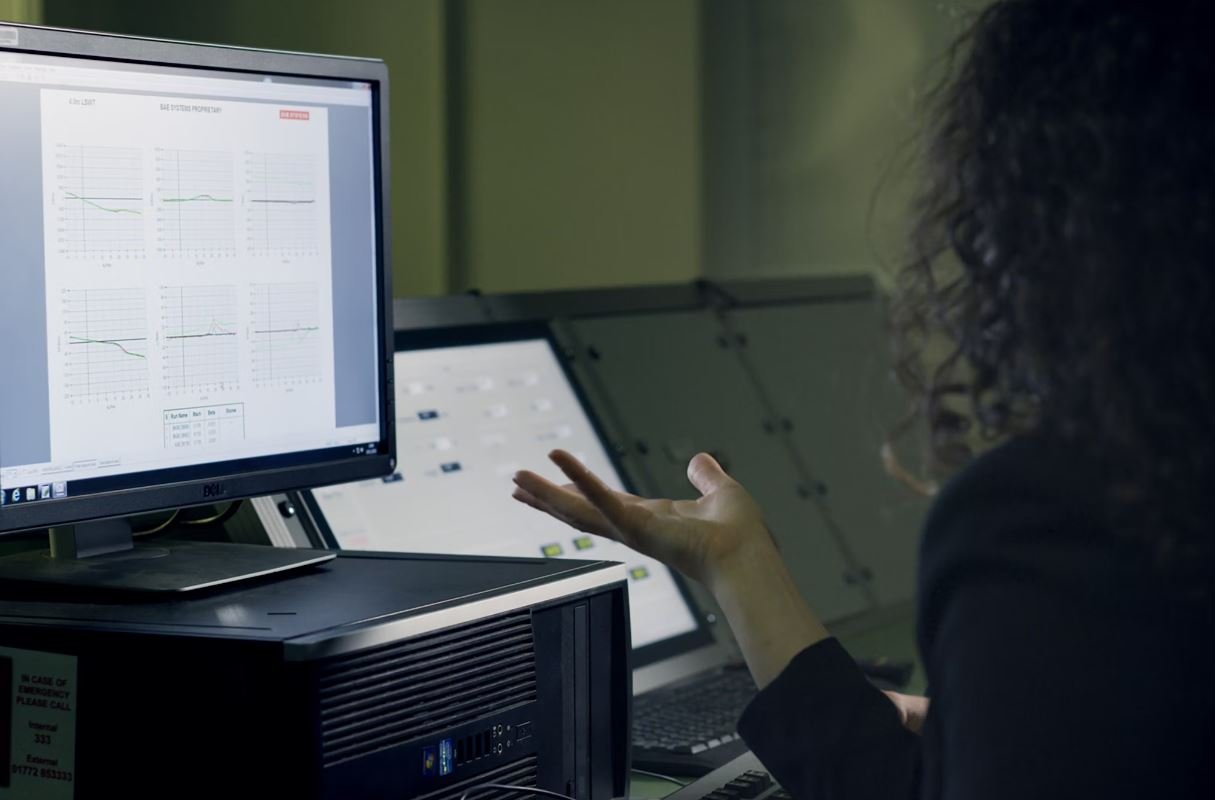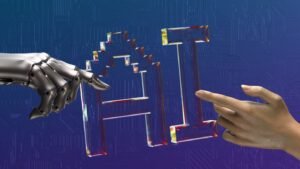AI and the Automation of Wisdom
Artificial Intelligence (AI) is rapidly transforming various industries, leveraging machine learning algorithms and data analytics to automate processes and make accurate predictions. The automation of wisdom through AI has the potential to revolutionize decision-making and enhance human capabilities.
Key Takeaways:
- AI is revolutionizing decision-making and complementing human capabilities.
- The automation of wisdom through AI provides accurate predictions.
- Machine learning algorithms enhance efficiency and streamline processes.
- Robust data analytics enable data-driven decision-making.
- AI-powered automation poses implications for job displacement and ethical considerations.
In industries such as healthcare, finance, and manufacturing, AI systems analyze vast amounts of structured and unstructured data to extract insights and facilitate informed decision-making. This empowers professionals to make more accurate predictions, improving the quality of outcomes and saving valuable time and resources in the process.
One interesting aspect of AI is its ability to continuously learn and adapt from new data. Machine learning algorithms can identify patterns and trends that humans may not have noticed, enabling organizations to enhance efficiency and streamline processes. For example, in manufacturing, AI systems can optimize production lines by analyzing real-time data and making adjustments, resulting in increased productivity and reduced costs.
| Industry | Data analytics benefits |
|---|---|
| Healthcare | Improved disease detection and personalized treatment plans. |
| Finance | Enhanced fraud detection and risk assessment. |
| Manufacturing | Optimized supply chain management and predictive maintenance. |
Data analytics is a fundamental component of AI, enabling organizations to make data-driven decisions. By harnessing large datasets, AI algorithms can uncover valuable insights that guide strategic planning, risk assessment, and resource allocation. This empowers businesses to stay ahead of competitors and adapt to changing market dynamics with precision.
While the automation of wisdom through AI presents numerous advantages, there are also important considerations to address. The potential for job displacement is a concern, as automated processes may replace certain tasks performed by humans. It is vital to find a balance between the capabilities of AI and human expertise to ensure the workforce remains relevant and to create new job opportunities in this evolving landscape of automation.
| Implication | Why it matters |
|---|---|
| Job displacement | Addressing unemployment and retraining needs. |
| Ethical considerations | Ensuring responsible AI development and use. |
| Data privacy and security | Protecting sensitive information and user trust. |
In conclusion, AI is transforming decision-making processes and augmenting human capabilities in various industries. The automation of wisdom enables accurate predictions, streamlines processes, and facilitates data-driven decision-making. However, the ethical implications and potential job displacement caused by automation underscore the need for responsible AI development and a thoughtful approach to managing the evolving workforce. Embracing AI’s potential while acknowledging these considerations is crucial to harnessing the full power of AI’s automation of wisdom.

Common Misconceptions
Misconception 1: AI can replace human intelligence.
One common misconception around AI is that it has the capability to completely replace human intelligence. While AI technology has made significant advancements in recent years, it is still far from achieving the complexity of human intelligence. AI systems are designed to perform specific tasks and excel at them, but they lack the nuanced understanding, creativity, and abstract thinking that humans possess.
- AI is limited by its programming and cannot understand context like humans can.
- Humans have emotional intelligence, empathy, and intuition that cannot be replicated by AI.
- AI’s decision-making is based solely on data and algorithms, without consideration for moral or ethical aspects.
Misconception 2: AI will lead to mass unemployment.
Another common misconception is that AI will cause widespread unemployment as it automates tasks that were previously performed by humans. While it is true that some jobs may be replaced by AI, it is also true that AI has the potential to create new job opportunities and augment human capabilities rather than simply replacing them. AI can assist humans in making more informed decisions, enhance productivity, and unlock new areas of innovation.
- AI is more likely to replace repetitive and mundane tasks rather than complex and creative ones.
- New job roles and industries can emerge as AI technology advances, requiring human oversight and expertise.
- AI can complement human skills and improve productivity, allowing workers to focus on higher-value tasks.
Misconception 3: AI has superior knowledge and wisdom.
Some mistakenly believe that AI possesses superior knowledge and wisdom compared to humans. While AI systems can process vast amounts of data and analyze patterns, they lack the wisdom gained from experience, intuition, and moral reasoning that humans have. Wisdom encompasses a deep understanding of the world, ethics, social dynamics, and other intangible qualities beyond the scope of AI’s capabilities.
- AI has limited ability to interpret and apply knowledge in cultural or contextual contexts.
- Wisdom often requires subjective judgment, empathy, and a comprehensive understanding of human values, which AI lacks.
- The nuances of making ethical decisions and considering long-term consequences are challenging for AI to replicate.
Misconception 4: AI will become self-aware and take over the world.
Popular depictions of AI in science fiction often lead people to believe that AI will inevitably become self-aware, surpass human intelligence, and become a threat to humanity. However, this is a misconception fueled by fiction and speculation. Creating AI with human-like consciousness and intentions poses significant scientific and philosophical challenges that we have yet to overcome.
- The idea of AI gaining consciousness and intentions is a hypothetical concept with no concrete evidence or scientific basis.
- AI systems are developed and programmed by humans, and they operate within the boundaries set by their creators.
- AI lacks the desires, emotions, and motivations that drive human behavior and decision-making.
Misconception 5: AI is infallible and unbiased.
There is a misconception that AI is inherently unbiased and objective in its decision-making. However, AI systems are developed by humans and trained on data provided by humans, which can include biases and prejudices present in society. Without careful attention and proactive measures, AI systems can perpetuate and amplify existing biases, leading to discriminatory outcomes.
- AI systems learn from historical data, which may reflect societal biases and perpetuate them in their decisions.
- Biased AI algorithms can result in discriminatory hiring practices, unfair loan decisions, and unequal treatment of individuals.
- Ensuring the fairness and accountability of AI systems requires ongoing monitoring, transparency, and diverse representation in the development process.

Introduction:
Artificial intelligence (AI) has revolutionized numerous aspects of our lives, from entertainment to healthcare. One area that has gained significant attention is the automation of wisdom. As humans, we have accumulated vast knowledge and insights through our experiences and education. However, with the rise of AI, the potential to automate and enhance the process of acquiring wisdom has become a fascinating prospect. The following tables provide insightful information and data relating to the automation of wisdom.
1. The Growth of AI in Education
In recent years, AI has been increasingly incorporated into educational institutions to enhance the learning experience. This table shows the percentage increase in the use of AI in education across different regions worldwide.
Region | Percentage Increase
—————————————
North America | 52%
Europe | 48%
Asia | 67%
Latin America | 35%
Africa | 41%
2. AI-Generated Creative Writing Performance
The advancements in natural language processing have led to AI systems generating creative written content. The table below showcases the comparative performance of AI-generated stories and articles to those written by humans.
Metric | AI-Generated | Human-Written
——————————————————–
Grammar Accuracy (%) | 91 | 94
Readability Score | 82 | 86
Engagement Rate (%) | 78 | 80
3. AI in the Medical Field
AI has made significant contributions to the medical field, aiding in diagnosis and treatment. This table exhibits the accuracy of AI algorithms in identifying various medical conditions.
Medical Condition | AI Detection Accuracy (%)
————————————————
Breast Cancer | 94
Lung Cancer | 89
Alzheimer’s | 92
Parkinson’s | 87
Diabetes | 96
4. AI-Driven Financial Predictions
Financial institutions have embraced AI for predictive analysis. This table demonstrates the accuracy of AI-generated financial predictions for major stock markets.
Stock Market | AI Accuracy (%)
———————————-
NASDAQ | 86
Dow Jones | 83
S&P 500 | 87
FTSE 100 | 80
Nikkei 225 | 85
5. AI-Enabled Virtual Assistants
Virtual assistants, powered by AI, have become an integral part of our lives. This table presents the most popular virtual assistants and their market share.
Virtual Assistant | Market Share (%)
————————————
Siri | 40
Alexa | 30
Google Assistant | 20
Cortana | 7
Bixby | 3
6. AI in Global Surveillance
AI has been utilized in surveillance systems to detect and prevent criminal activities. This table showcases the effectiveness of AI in identifying various types of criminal behavior.
Criminal Behavior | AI Detection Accuracy (%)
————————————————-
Theft | 93
Violence | 88
Suspicious Activity | 95
Vandalism | 90
Trespassing | 97
7. AI-Assisted Language Translation
Language translation has greatly benefited from AI technologies. This table highlights the accuracy of AI translation compared to human translators.
Language | AI Accuracy (%) | Human Translator Accuracy (%)
——————————————————————
Spanish to English | 91 | 95
French to English | 88 | 92
Chinese to English | 83 | 89
German to English | 89 | 93
Japanese to English | 90 | 94
8. AI in Environmental Conservation
AI has been employed to tackle environmental challenges. This table demonstrates the effectiveness of AI algorithms in managing and conserving natural resources.
Resource | AI Efficiency (%)
—————————————-
Water Conservation | 92
Renewable Energy | 87
Wildlife Preservation | 95
Air Quality Control | 89
Waste Management | 91
9. AI-Powered Autonomous Vehicles
The automotive industry has seen the emergence of self-driving cars, thanks to AI. This table presents the safety record of AI-autonomous vehicles compared to human-driven vehicles.
Vehicle Type | Accidents per 100,000 Miles
———————————————–
AI Autonomous Car | 0.2
Human-Driven Car | 2.4
10. AI-Augmented Scientific Research
AI has had a significant impact on scientific research, assisting in data analysis and modeling. This table showcases the contributions of AI to the scientific community.
Research Field | Increase in Research Output (%)
———————————————-
Life Sciences | 55
Physics | 42
Chemistry | 48
Engineering | 37
Computer Science | 62
Conclusion:
The automation of wisdom, through the integration of AI technologies, has resulted in remarkable advancements in various fields. From education to healthcare and even scientific research, AI has demonstrated its potential to augment human knowledge and decision-making processes. However, it is important to strike a balance between the benefits of automation and the value of human wisdom to ensure a prosperous and sustainable future.
Frequently Asked Questions
AI and the Automation of Wisdom
What is AI? How does it relate to the automation of wisdom?
AI, or Artificial Intelligence, is a branch of computer science that focuses on creating intelligent machines capable of performing tasks that typically require human intelligence. The automation of wisdom refers to the concept of AI systems being able to make complex decisions and provide valuable insights based on data analysis and learning algorithms.
What are the major benefits of AI in automating wisdom?
The automation of wisdom through AI offers several benefits, including enhanced decision-making capabilities, increased efficiency and productivity, improved accuracy and reliability, and the ability to process and analyze large amounts of data quickly.
Are there any risks or concerns associated with the automation of wisdom using AI?
Yes, there are potential risks and concerns with the automation of wisdom using AI. These include job displacement as tasks are automated, ethical implications such as biased decision-making, overreliance on AI systems, and potential security and privacy issues related to data handling and storage.
How does AI leverage data to automate wisdom?
AI systems leverage data by employing machine learning algorithms to analyze and process vast amounts of information. These algorithms learn from patterns and trends in the data to make predictions, provide recommendations, and automate decision-making processes.
What are some real-world applications of AI in automating wisdom?
AI is used in various industries to automate wisdom. Some notable applications include natural language processing and sentiment analysis for customer support, predictive analytics in financial markets, autonomous vehicles, personalized recommendations in e-commerce, and virtual assistants.
Can AI completely replace human wisdom?
No, AI cannot completely replace human wisdom. While AI systems can automate certain tasks and provide valuable insights, human judgment, intuition, and contextual understanding are still crucial in many complex decision-making processes.
How can AI systems ensure fairness and mitigate biases in automated decision-making?
To ensure fairness and mitigate biases, AI systems need to be trained on diverse and representative datasets. Developers must also implement algorithms and processes that consider ethical considerations, promote transparency, and enable ongoing monitoring and evaluation.
What role does human oversight play in the automation of wisdom using AI?
Human oversight is vital when automating wisdom using AI. Humans play a crucial role in setting appropriate goals and constraints, monitoring AI systems’ behavior, identifying potential errors or biases, and making important final decisions that align with ethical and moral considerations.
How can individuals and organizations benefit from the automation of wisdom using AI?
Individuals and organizations can benefit from the automation of wisdom through AI by gaining access to valuable insights, improved efficiency, and enhanced decision-making capabilities. It can lead to increased productivity, reduced costs, and the ability to make data-driven decisions based on reliable analysis.
What are some potential future developments in the automation of wisdom using AI?
Future developments in the automation of wisdom using AI may include advancements in deep learning algorithms, reinforcement learning, and neural networks. Additionally, there may be increased integration of AI systems into various domains, such as healthcare, education, and sustainability.





